Magic: The Gathering, the most successful trading card game ever, and I have an on-again-off-again relationship spanning more than a decade since the time of 4th Edition and Ice Age. Recently, I have been reintroduced to the game in the form of the digital version and spent quite a bit of time and money on it. Magic: Not Even Once.
Magic is an amazing game because the game allows incredibly complex interactions to be created on the foundation of relatively simple rules. One of the fundamental ideas in the game is card abilities can actually alter the rules of play, allowing players to do things that are not normally expected.
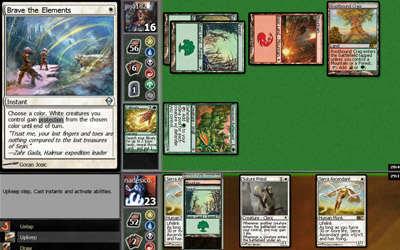
On the basic level, cards with bigger numbers that do bigger damage help you to kill your opponents faster. All TCGs get that part of game design. But in Magic, expectations often get flipped upside down in a single move and a single card can alter the entire board. For example, players start with 20 lives and lose when they hit 0 in a regular game, but a card such as Transcendence can drastically change the dynamics when it hits the board unexpectedly.
Magic: The Gathering Online (MTGO) makes Magic so much more addictive than before because it makes it so easy to play games. Being a trading card game, it was often difficult in the past to obtain all the cards you require to build a deck exactly as you require. This involved meeting up with people over the weekends and engaging in time-consuming banter trade. In Magic Online, the economy is much more fluid and the supply of cards in the secondary market is consistent and there are always sellers online ready to fulfil your capricious needs. It’s almost too easy to buy cards and the only barriers are your self control and Wizards of the Coast‘s (the creators of Magic) abysmal interface design.
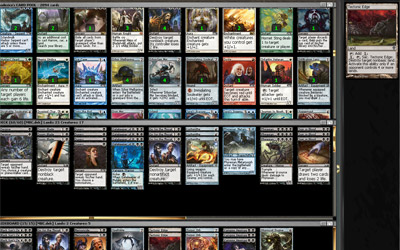
Deck construction
In Magic Online, you can purchase booster packs from the company directly and “open” them up just like in real-life, but the better option is to simply buy the exact cards you want directly from sellers. Due to the abundance of supply of cards from regular drafting, most common and uncommon cards go for a few cents or less, a much better deal than buying a booster pack of 15 cards for 4 bucks hoping that the rare card is worth more than that (which is usually not the case). With some smart buying, you can build rather competitive decks for cheap. And best of all, you only need 4 copies of any card ever because all your decks share the same virtual card pool and you don’t need multiple 4-copy sets of the same card if you want to reuse it in other decks (which is another reason why the secondary market is so well supplied).
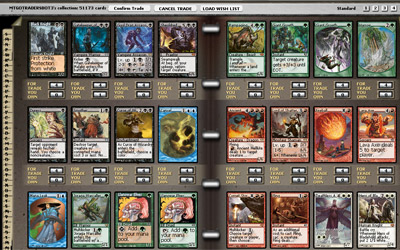
Trading screen
However, the secondary market also plays host to one of the fundamental problems in Magic Online: the trading system is incredibly rudimentary. Wizards of the Coast apparently doesn’t want to lend too much aid to the secondary market, because the game client features no auction system, no direct transaction of currency between users and no autosell function like certain trade stalls in MMORPGs.
The entire economy runs on “event tickets” that cost 1 USD each and are nominally used to pay for entry fees to tournaments and premier events. These serve as the de facto currency used in transactions between players when direct card-for-card trade is not possible. The problem with event ticket is that the minimal denomination is 1 USD, making it incredibly cumbersome as a currency when most cards cost between 1 to 8 cents. All these deficiencies led to the creation of commercial third-party trade bots that automate the trade process using image recognition and keep track of partial credits for individual users.
For example, I buy a card from Sellbot1 for 8 cents and the bot takes 1 ticket from me. The bot will then credit $0.92 to my name, so the next time I try to take cards from Sellbot1, it won’t charge me any tickets and will instead deduct the value from my stored credits. The owner of Sellbot1 may also be running Sellbot2, which sells different kinds of cards, and stored credits will also work on it.
While it’s remarkable how the community worked around the asinine limitations to develop a thriving economy, you can’t help but wonder how much healthier the MTGO economy would have been if Wizards had implemented proper auction and trading systems found in every major MMO game. The current system, while workable, creates artificial trade barriers by giving incentive to people to consistently trade with the same bots they already have credits on instead of searching for the best price for each individual card. Also, there is no real way to search for card prices across the whole market, so you pretty much have to check all the major bots manually. This non-ideal availability of pricing information again creates artificial inefficiencies in the market that simply shouldn’t exist.
Of course, when it comes to TCGs, the common concern of having to procure over-expensive rare power cards in order to win is also present in Magic. This is partially alleviated by multiple tournament formats, in which the most popular format only uses the most recent core set and two recent expansion blocks, thus ensuring that all cards in the format are in print. Personally, I find that prices in this format are generally acceptable, especially on MTGO where the prices are much lower and more optimized than its hard-copy counterpart.
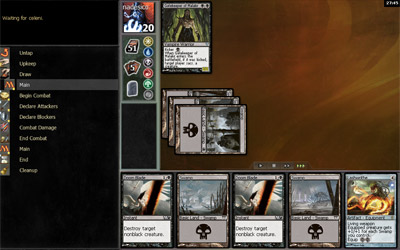
In Magic, there is a concept known as the “metagame”. Some cards are useful all the time, but some cards are dependent on the state of the metagame. For example, a card that destroys all red creatures is normally of limited use because you don’t know what colour(s) your opponent is playing beforehand and it is only valuable in a metagame where many players run red cards. In real-life, games tend to be played amongst the same group of people week after week, hence winning often entails knowing what kind of decks they play and specifically play cards that may not be generally good but are highly effective against those specific decks. The anticipation of what your opponent will play based on experience and knowledge of the current pool of tournament-legal cards is the so-called metagame — the game outside the game (cue Inception music).
A good thing about MTGO is that you can always find someone to play with and the kind of decks you play against can vary a lot. You get to see very creative builds and combos and the metagame is ever changing due to new combos being discovered and new decks being tested in tournaments. And best of all, you can keep playing for as long as you want any time of the day.
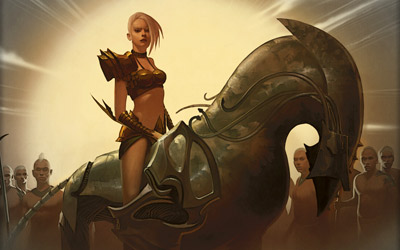
Hero of Bladehold. Awesome card
Of course, it’s not all roses and sunshine. The current iteration of the MTGO client features the worst interface design since the 90s and even then I am pretty sure that Micropose’s Magic: The Gathering computer game from the late 90s featured better design than this. It looks like the client was made with Visual Basics and there are simply so many wtf design choices. Fortunately, a new client featuring modern technology is scheduled to enter beta and be released sometime this year. If it is anything similar to the Duels of the Planeswalkers 2012 game recently released for Xbox and PC, it should be good.
If anyone wants to duel me on MTGO, add nadesico. I couldn’t believe that name wasn’t taken considering how many Japanese players are on MTGO.
On another note, there will be a “Digital Face-off” tournament held through Duels of the Planeswalkers 2012 pitting employees of eight tech/gaming companies, including Valve, Google and Microsoft, against one another.

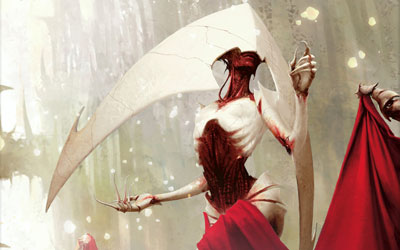
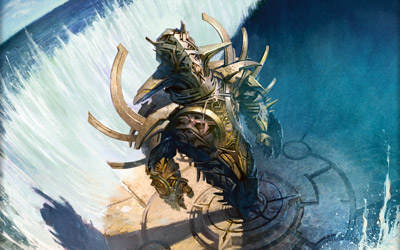
I’ve been scratching my Magic itch with Duels of Planeswalker games. As much fun as it is making my own deck, I don’t really want to be arsed with the overhead. I just want to boot it up and play for 30 minutes at a time, or something.
It’s also an easy way to play with a variety of decks that would cost more to make than the cost of the game. I lose out on the deckbuilding part (which admittedly is a huge part of the game) and some alternative play formats (commander w). Fair trade I suppose.
Try Wagic. Wololo.net/wagic
fack! do i need money for this. Ik this is a tl;dr comment.
update:
I’m depressed.
There are actually free alternatives out there.
Simply want to say your article is as surprising.
The clearness in your post is just nice and i could assume you’re an expert on this
subject. Fine with your permission let me to grab your RSS feed to keep updated
with forthcoming post. Thanks a million and please carry on the enjoyable work.
Pingback: Melvincavazos.Soup.Io